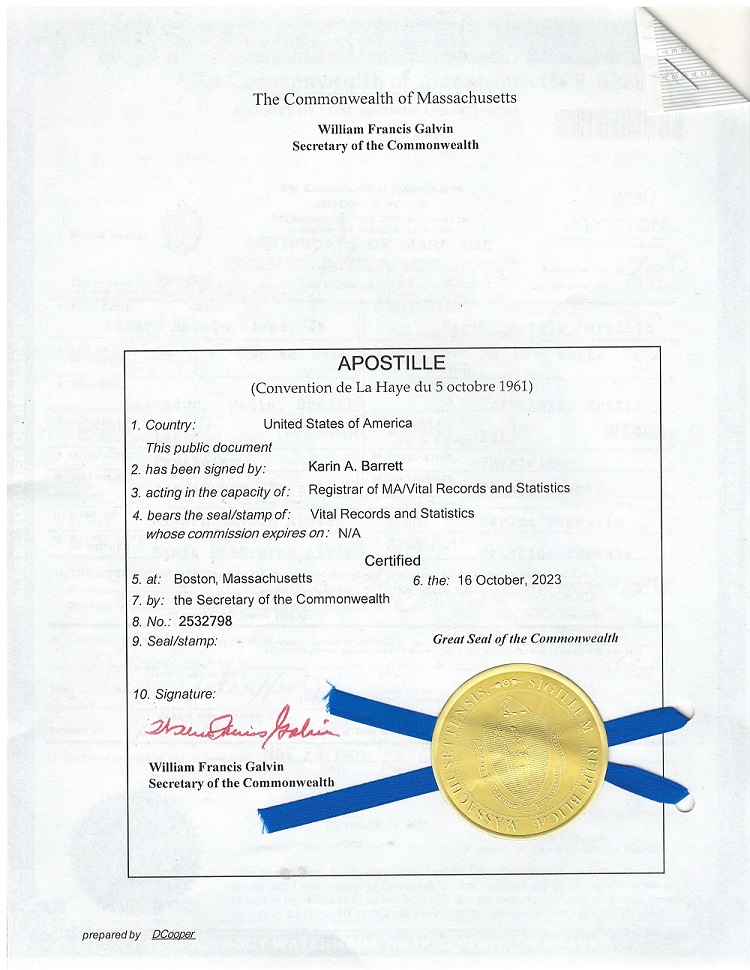Introducing the Vital Function of Apostille in Simplifying International File Recognition Processes
In the realm of global events, the validation of documents holds extremely important importance. Amidst the internet of administrative procedures and differing legal requirements throughout various countries, the function of apostille becomes a crucial facilitator in enhancing the process. By attaching an apostille to a document, it goes through a streamlined validation that is recognized across countless nations, thus easing the concerns connected with cross-border file authentication. As we look into the intricacies of this specialized accreditation, the nuances between apostille and standard recognition methods come to light, dropping a new viewpoint on the performance and effectiveness of this crucial yet usually overlooked procedure.
Understanding Apostille Fundamentals
In the world of file validation for worldwide usage, grasping the essential concepts of apostille authentication is critical. An apostille is a specific certification that validates the credibility of a document for usage in foreign nations that are component of the Hague Apostille Convention. Comprehending the fundamentals of apostille entails identifying that it does not validate the material of the paper however instead certifies the signature and seal of the releasing authority. This qualification streamlines the process of international document recognition by guaranteeing that the document will certainly be recognized as real in countries that are events to the Apostille Convention.
Apostilles are generally issued for crucial records such as birth certifications, marital relationship certifications, and scholastic records. The vital elements of an apostille include the name of the country where it was issued, the name of the individual signing the file, the capacity in which the person authorized the record, the seal or stamp of the issuing authority, and the day of issuance. By recognizing these essential elements of apostille authentication, companies and individuals can navigate the complexities of worldwide document recognition with confidence and efficiency.
Benefits of Apostille for Validation

Furthermore, the apostille simplifies the verification process by offering a standardized certification that verifies the authenticity of the record, such as birth certifications, marriage licenses, notarized deeds, and scholastic records. This standard style lowers the risk of being rejected as a result of unfamiliarity with international records, thus improving the performance of cross-border purchases.
Moreover, the apostille helps in eliminating the demand for numerous layers of authentication by federal government authorities, as the apostille itself symbolizes the record's validity. This not just increases the file validation procedure but additionally lowers the linked costs and bureaucratic obstacles, making it a economical and practical service for businesses and people taking part in international tasks.
Streamlining Cross-Border Document Authentication
Helping with the recognition of papers throughout global borders, you can try this out the apostille procedure works as a structured and universally recognized method for verifying different sorts of main documentation. Streamlining cross-border file verification, the apostille eliminates the need for prolonged and usually challenging recognition procedures usually needed when providing documents in foreign nations. By fastening an apostille to a record, the releasing country accredits the authenticity of the paper, making it readily acceptable in other nations that are part of the Hague Apostille Convention. This standard process significantly reduces the time and initiative entailed in verifying the authenticity of main documents, promoting efficiency and ease of international deals.
In addition, the apostille system enhances the safety and security and reliability of cross-border file recognition by offering a transparent and worldwide accepted mechanism for verifying the credibility of files. This simplification of authentication processes not just advantages individuals and companies seeking to run globally however also promotes smoother interaction and cooperation between nations by making sure the integrity of shared documentation.
Significance of Apostille in Legalization

Apostille makes sure that legal files such as birth certifications, marital relationship certificates, powers of lawyer, and court files are recognized and accepted in foreign jurisdictions. This is especially important in legal matters such as global fosterings, immigration procedures, or company purchases that include events from various countries. The apostille process minimizes the lengthy procedures and administrative obstacles commonly connected with record legalization, making international transactions much more reliable and legally binding. Finally, the significance of apostille in the legalisation of global files can not be overemphasized, as it facilitates smooth cross-border interactions and makes sure the validity and authenticity of lawful paperwork.
Apostille Vs. Standard Recognition Approaches
Contrasting apostille with typical validation methods reveals distinctive differences in the effectiveness and simplicity of file authentication processes for international use. Apostille, as a streamlined and standardized technique developed by the Hague Convention, supplies a much more uncomplicated technique to validating files contrasted to standard approaches. Standard validation processes frequently entail multiple actions, including notarization, qualification by federal see this website government authorities, and consular legalization, which can be time-consuming and cumbersome.
Apostille, on the various other hand, streamlines this process by certifying papers with a single apostille certificate provided by an experienced authority in the country where the document originates (Houston TX Apostille). This certificate is acknowledged by all member countries of the Hague Convention, eliminating the demand for additional consular office legalisation. Because of this, apostille considerably minimizes the time and effort required for paper validation, making it a favored option for individuals and organizations entailed in global purchases
Verdict
To conclude, apostille plays an important role in simplifying worldwide file recognition processes by providing a standardized approach of authentication that is acknowledged across participating countries. By streamlining the legalization procedure, apostille removes the demand for numerous layers of validation, minimizing time and prices connected with cross-border record verification. This reliable system advantages individuals and companies looking for to use foreign documents for legal purposes, ensuring smoother global deals.
By affixing an apostille to a document, it undertakes a simplified validation that is recognized throughout many countries, thus alleviating the concerns connected with cross-border document verification. Streamlining cross-border document verification, the apostille removes the demand for usually complex and lengthy validation procedures commonly called for when offering records in foreign nations. By fastening an apostille to a document, the releasing country certifies the credibility of the file, making it conveniently appropriate in other countries that are part of the Hague Apostille Convention. By affixing an apostille to a paper, the providing country certifies the authenticity of the trademark, seal, or stamp on the record, making it legitimate for use in one more participant nation of the Hague Apostille Convention without the requirement for more legalization.
